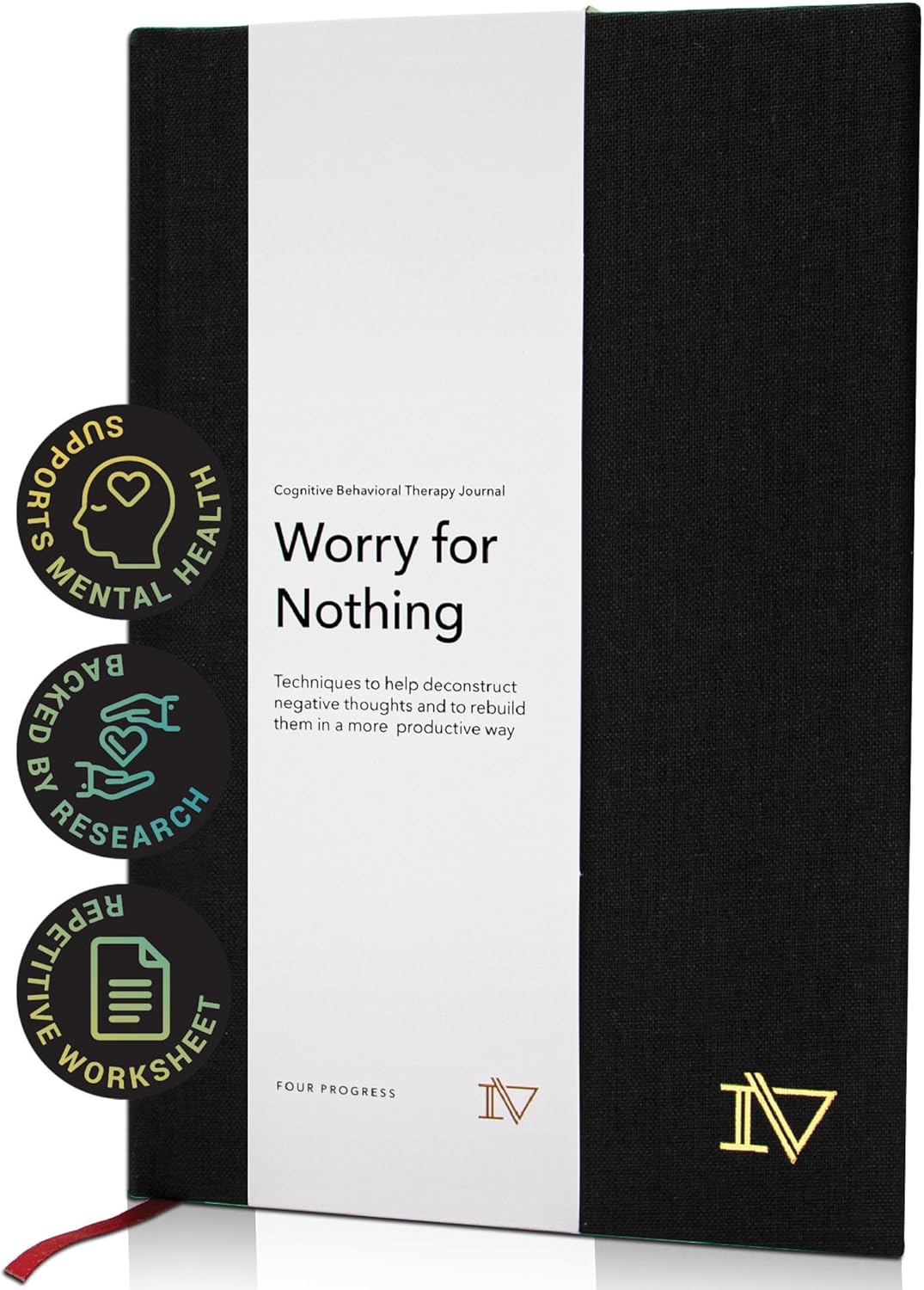“A restless mind, adrift in a sea of emptiness; searching for meaning, longing for steadiness.”
How frustrating it feels when we desperately want to break the flow of negative thoughts swirling in our minds but can’t shake them off?
This feeling of helplessness drains your energy and makes you feel even more stressed and anxious, pushing you deeper into emptiness and despair.
If you’re wondering how to break free from this cycle of negative thoughts and overwhelming stress, you can do it by finding your path to peace and balance.
All you need to do is take the first step toward understanding the feelings you’ve deeply suppressed. From there, hope and positivity will follow, paving the way to calmness and a more controlled mind.
Let’s explore why controlling your mind is essential and discover some effective strategies to help you achieve it.
Why Should You Take Control of Your Mind?
If you’re stuck on an emotional rollercoaster and finding it hard to break free, it’s important to realize that your brain is in charge.
If you want to control your mind, you need to understand that it’s a continuous journey that begins with discovering the ‘why.’
Taking control of your mind is crucial for mental clarity, emotional balance, and personal growth. When you are in charge of your thoughts, you can stop reacting impulsively and start making decisions aligned with your true self.
Studies show that people who practice mindfulness and mental control experience lower levels of stress and anxiety. According to the American Psychological Association, 1 in 5 people report feeling overwhelmed by thoughts they can’t control.
🎭 Fun Fact
Your mind is like a remote control—when you don’t consciously choose the channel, it flips through random emotions and thoughts. But once you take control, you get to decide what to focus on, bringing more peace and clarity into your life.
- The Impact of a Wandering Mind
When you are constantly feeling that your mind is wandering and cannot process your thoughts properly, it can lead to chronic stress, anxiety, and depression. You find it hard to live in the present and focus on what really matters with these noises in the background.
- Benefits of Controlling Your Mind
Controlling your mind is essential; it helps you conquer life’s challenges more effectively and makes you more resilient. It also enables you to handle external stressors better and face difficult situations calmly and peacefully.
How Can You Identify and Break Negative Thought Cycles?
To keep your mind in control, it is essential to identify what causes these negative thoughts and how you can break this cycle.
Most of the time, you feel that your mind is trapped in an endless cycle of unwanted thoughts. You can break this loop, driven by automatic thinking patterns, with self-awareness, which leads to emotional exhaustion and decreased self-esteem.
Research suggests that 90% of people’s thoughts are repetitive, and many are negative.
👉 Pro Tip
When you catch yourself spiraling into negative thoughts, pause and ask yourself: “Is this thought helping or harming me?” This simple question interrupts the cycle, giving you a moment to challenge the thought and redirect your mind toward something more constructive.
- Identifying Cognitive Distortions
To identify the cycle of your negative thoughts, you can start by analyzing cognitive distortions such as black-and-white thinking, catastrophizing, or overgeneralizing. These are automatic, irrational thought patterns that contribute to mental distress. Once you recognize them, you can consciously challenge these thoughts.
- Mindful Disruption of the Cycle
Mindfulness is a powerful tool for breaking these cycles. By bringing your attention to the present moment without judgment, you can disrupt negative thought patterns and make room for healthier ones. Practicing mindfulness enhances neuroplasticity, helping to rewire your brain for better mental well-being.
Practical Strategies to Strengthen Your Mind
If you truly want to control your mind and build mental strength, you must understand that consistent effort is essential for achieving transformative results.
Here are the simple yet powerful steps to strengthen your mind:
#1: Daily Meditation
Meditation is one of the most effective ways to regain control over your thoughts. Even if you practice meditation for a few minutes daily, it helps reduce stress, improve focus, and increase self-awareness. Studies have shown that meditating for just 10 minutes a day can lead to changes in brain structure, particularly in areas related to self-control.
#2: Cognitive Behavioral Techniques
Cognitive behavioral therapy (CBT) techniques are the best for reframing negative thoughts and replacing them with positive ones. For example, when you have a stressful thought, you can challenge it by asking yourself if it’s based on facts or emotions.
#3: Journaling
Another great way to process your thoughts and emotions is to write them down. This will help you identify patterns and prepare better solutions. Journaling helps you explore your mental landscape, highlighting areas where you may need to adjust your thinking or let go of unwanted thoughts.
#4: Visualization
Visualization can be a powerful tool for controlling your mind. Imagine the outcome you desire and visualize yourself successfully achieving it. This technique helps you focus on positive outcomes and primes your brain to act accordingly.
👉 Mindful Thought
Your mind is like a muscle—the more consistently you train it, the stronger and more flexible it becomes. Embrace the journey of mental strength, knowing that each moment of focus brings you closer to balance and mastery over your thoughts.
These powerful practices can help you strengthen your mind, allowing you to regain control and balance your emotions.
How to Keep Your Mind Controlled During Emotional Highs?
Various factors, such as anger, excitement, or fear, trigger emotional highs. These emotions can quickly override rational thinking, making it crucial to stay grounded and control your mind before acting impulsively.
Studies have shown that emotions can cloud judgment within 90 seconds of their onset, making it essential to act fast.
Below are some of the simple yet effective practices that can help you control your mind during emotional highs:
#1: The 90-Second Rule
One effective method is the 90-second rule, which states that you must wait 90 seconds before reacting. This practice helps your brain process emotions without jumping to conclusions. During this time, you can rest your mind by deep breathing, allowing clarity to surface.
#2: Grounding Techniques
You can include grounding techniques such as focusing on your breath, feeling the sensation of your feet on the ground, or holding a cold object, which can help you bring your awareness back to the present moment. These techniques connect your mind to physical sensations, breaking emotional cycles.
#3: Emotional Regulation Practices
Practicing emotional regulation techniques, such as labeling your emotions, “I feel angry right now,” and accepting them without judgment helps reduce their intensity. Acceptance allows you to process the emotion without letting it control your behavior.
👉 Bonus Point
In moments of emotional highs, a quick physical reset can make all the difference. Try splashing cold water on your face or stepping outside for fresh air—these simple actions can help you regain control of your mind and reset your emotional state instantly.
These effective strategies will help you stay calm during emotional highs and navigate challenging situations more easily.
Conclusion
Controlling your mind is not about eliminating all your negative thoughts or emotions; it is more about managing them effectively.
When you can control your mind, it helps you shape your reality, making intentional choices that align with your true self. This practice will become easier and more intuitive with time, leading to a more balanced, fulfilling, and authentic life.
You don’t need to take big leaps; start with small, consistent steps. Remember that mastering your mind is a journey, not a destination.
“Peace holding you close, thoughts settled on the surface; a steady mind, embracing calm with purpose.”
👉 7-Day Mind Control Challenge: Take Charge of Your Mind
- Day 1: Meditate for 5 minutes, focusing on your breath.
- Day 2: Journal your thoughts for 10 minutes to spot negative patterns.
- Day 3: Practice the 90-second rule when you feel an emotional high.
- Day 4: Visualize a positive goal for 5 minutes.
- Day 5: Use a grounding technique to stay present during stressful moments.
- Day 6: Reframe one negative thought into a positive one.
- Day 7: Reflect on your progress and celebrate your mental wins!
By completing this 7-day challenge, you’ll gain greater control over your mind, reduce impulsive reactions, and build a foundation for lasting mental resilience and clarity.





















